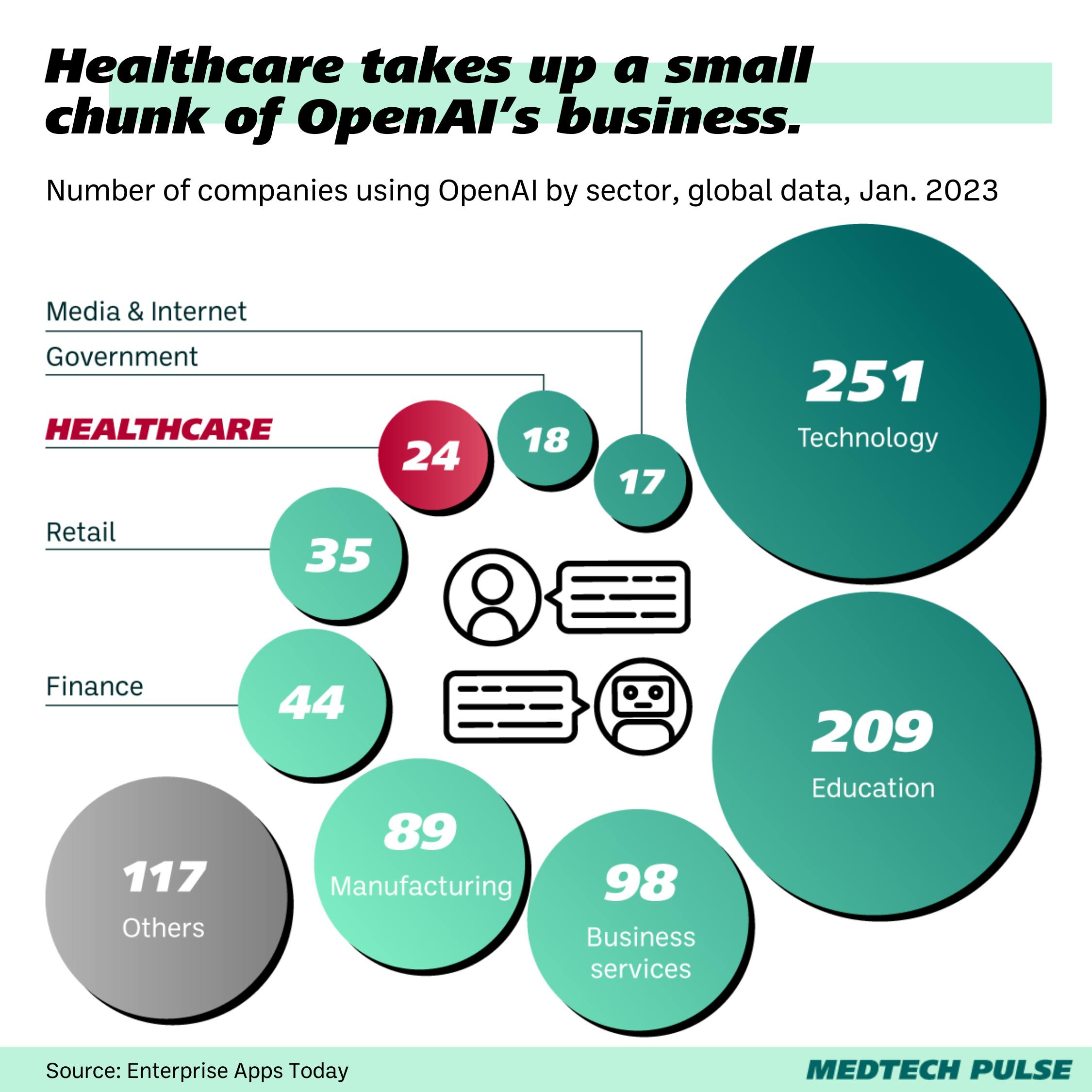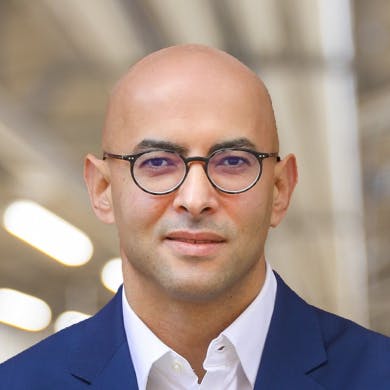OpenAI’s healthcare takeover
“A computer can never be held accountable.”
This is a famous quote for many technologists. It’s said to have surfaced from a 1979 IBM presentation about how computers should not be held responsible for management decisions.
Computer decisionmaking and artificial intelligence has come a long way since the 70s. But people’s wariness around a technology’s ability to make decisions with consequences is still palpable today. This is especially true in healthcare, where generative AI has been proposed to help solve issues ranging from appointment scheduling to ambient scribing to diagnosis.
And while GenAI overall dominates the medtech conversation, one company's products dominate the healthcare market: OpenAI.
The company behind ChatGPT has technology deployed across hospitals, pharma, cancer care, and many other settings. To some, this is cause for concern, given that OpenAI’s products are not immune to risks of common GenAI errors like hallucinations.
But I’m not here to add to the fear around GenAI in healthcare. In many ways, I think the eager adoption of this class of technology is reason for optimism. Healthcare, notorious for its resistance to adopting new technologies, is onboard with GenAI.
And what is so fascinating to me about our sector’s embrace of OpenAI in particular is that it’s not a healthcare company—not by a long shot.

In fact, OpenAI does not want to be a healthcare operation. The company says its work with the healthcare industry is being driven by demand from the sector, not the other way around.
Of course, many leading healthcare technologies also started outside of the sector, including:
- Wearables
- Robotics
- 3D printing
- Telemedicine
But for the most part, the dominant companies in these spaces are specifically health-focused. Not so for OpenAI. What does this tell us about our assumptions about the importance of healthcare insiders and trust-building in medical innovation?
As we evaluate new technologies, we need to always remember what they are built for.
Technologies not intentionally built with healthcare in mind can be game-changing for our sector, but we need to be careful with how we use them. Having healthcare insiders building things with generalist technologies is important to ensure innovations do right by our staff and patients.
But we also need to account for technologies that take over from outside our ranks. With compelling enough use cases, our sector will want to use them too. Whether the tech is ready or not.
